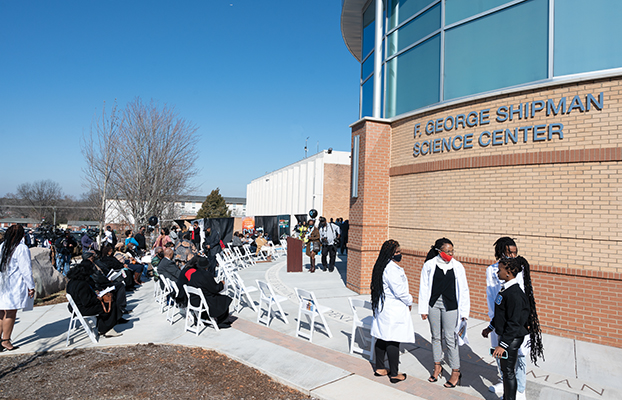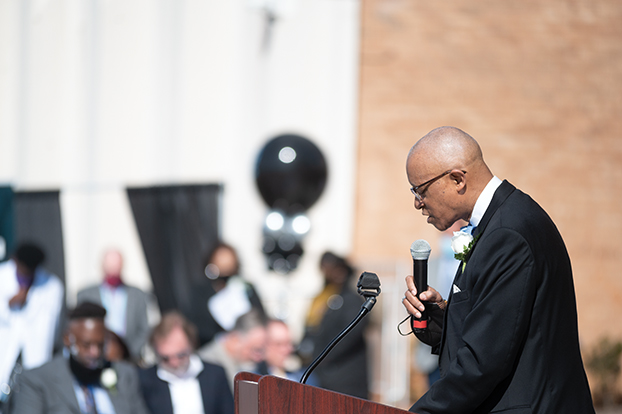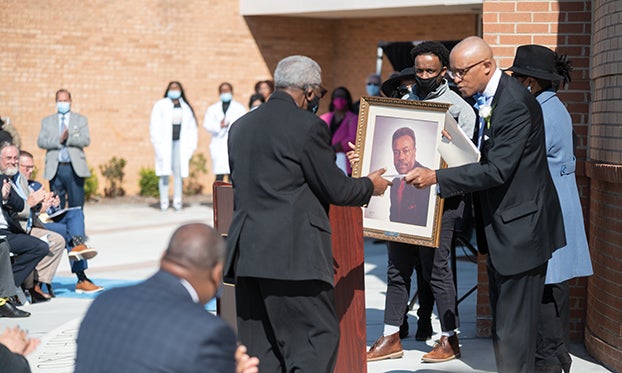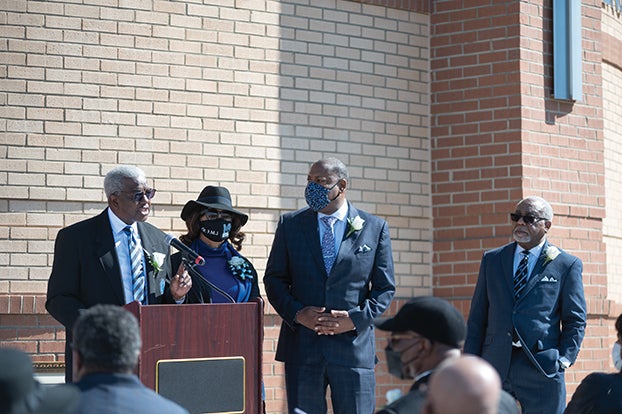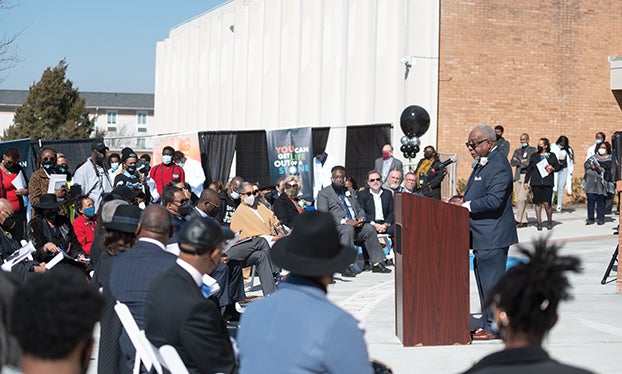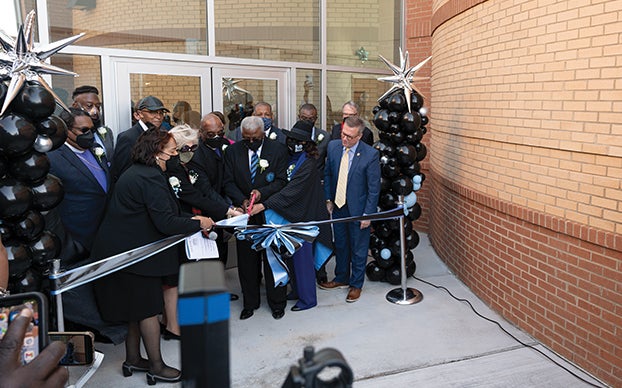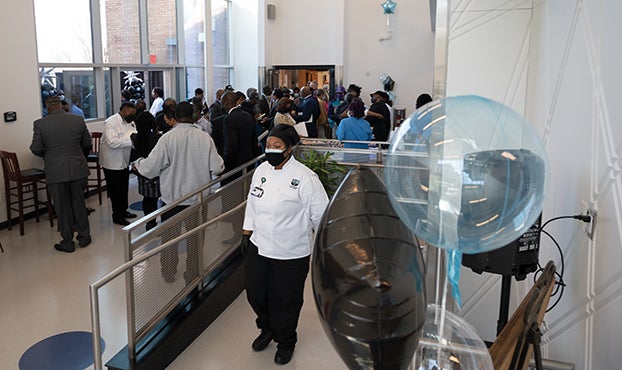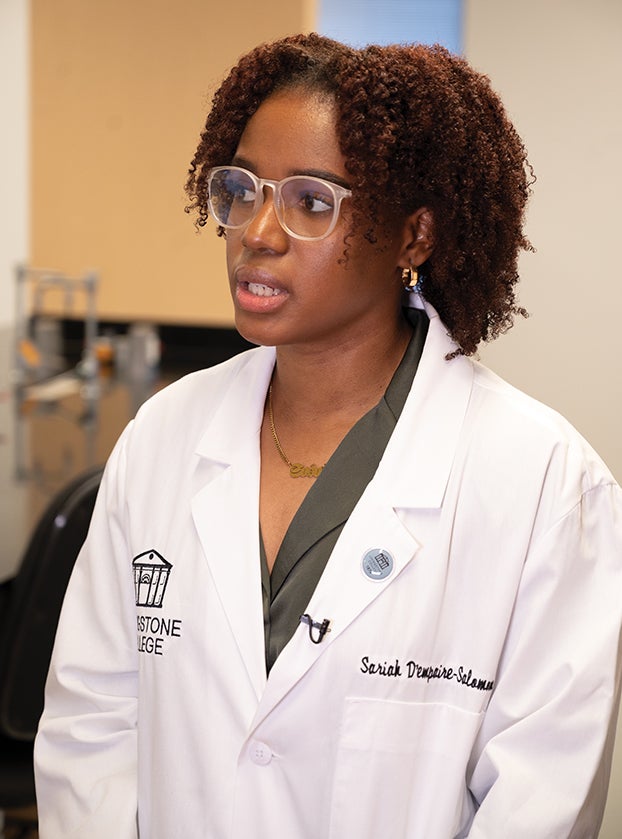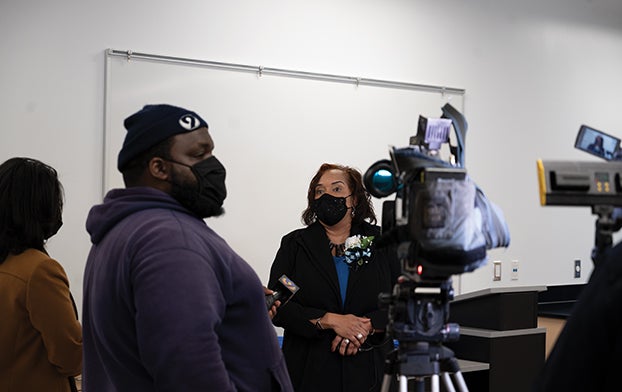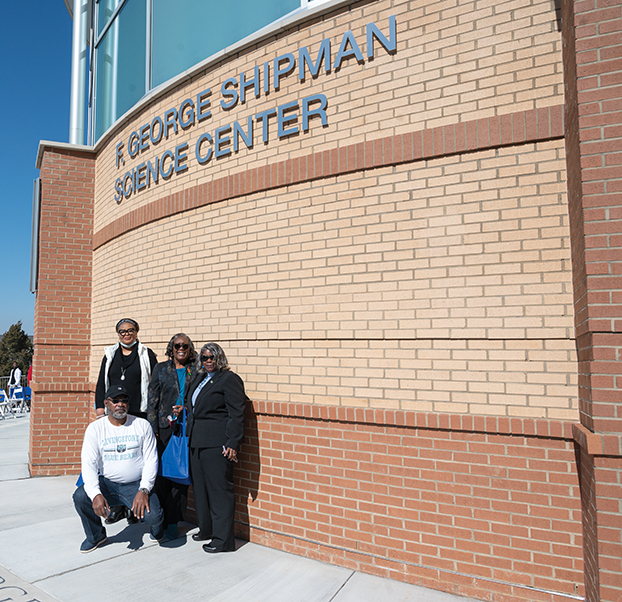‘Quantum leap forward’: Livingstone marks start of science-focused future with Shipman Center opening
Published 10:07 pm Friday, February 11, 2022
SALISBURY — Livingstone College on Friday opened the doors to limitless possibilities and a new science-focused mindset, Dawn McNair told a crowd of people gathered on the school’s campus.
McNair, Livingstone’s dean of math and science, spoke at the grand opening for the school’s F. George Shipman Science Center, saying it would provide students, faculty, staff, K-12 students and teachers as well as the Salisbury community with an opportunity to take a deeper dive into understanding the world through science. The $8.9 million facility measures 16,000 square feet, contains dedicated laboratory and research spaces for different disciplines, a planetarium and immersion theater, classrooms and a hydroponic greenhouse.
“Today, we begin the next chapter of Livingstone College and the new STEM vision,” McNair told the crowd. “The opening of the science center equipped with state-of-the-art laboratories, specialized instrumentation and an immersion theater creates a STEM ethos of innovation, research and community engagement.”
A $5,000 donation from the Shipman family to help with scholarships accompanied the opening of the Shipman Science Center, named for the school’s sixth president. Livingstone President Jimmy Jenkins said a grant-in-aid program also will waive tuition for students majoring in science, technology, engineering and math once they become juniors.
“If you want to be able to, in fact, generate the product that is of interest, then we’ll do like we do for athletes,” Jenkins said. “We give the athletes grant-in-aid because we think athletics is important, but we think STEM is equally as important, if not more important, so we’ve decided to do the same thing for them.”
McNair said 170 Livingstone students are STEM majors. The school hopes to grow the number by 25% in the next five years. The new facilities, Jenkins said, will help attract those students.
While he’s retiring in July, Jenkins sees Livingstone “taking a quantum leap forward” in the next five years because of the science center. He said the college also has submitted an application to provide graduate-level programs.
The college held a groundbreaking ceremony in 2016 for the new science center, saying it was just the beginning of a bright and prosperous future. The college remained at the start of its brighter future Friday, a host of speakers told attendees.
“The students who will train and conduct research in this facility are being equipped and empowered to command their rightful place in the global society,” Jenkins said. “But not only that, they are being empowered to compete and to contribute in an academic discipline that’s critical for this nation to keep pace globally.”
Historically Black colleges and universities comprise 3% of the colleges in America, but they produce 24% of the African Americans who earn degrees in STEM fields, Jenkins said.
Livingstone biology senior Sariah Dempaire-Salomon said the college provided her with new opportunities, including participating in the Aspirnaut Program at Vanderbilt University, and helped her learn new things about herself. After completing her bachelor’s degree, she plans to enter graduate school and pursue a career in public health.
It’s important, Dempaire-Salomon said, to have diversity in medicine and public health so people feel comfortable going to the doctor and receive medical treatment from people they can relate to.
“Having representation that looks like you is a very big deal for a lot of people. A lot of people don’t want to go to the doctor if their doctors can’t relate to them,” she said. “So, I want to be that person that they can relate to and have that shoulder to lean on. Because when you’re a physician, you’re not only a physician. You’re a humanitarian, too.”
Dempaire-Salomon says she’s taking cell biology and anatomy and physiology classes in the new science building. Among other things, the new technology means students can culture as well as build and reproduce cells.
“There’s brand new research that we get to do, which will bring so many opportunities for other kids and also bring in different specialties that kids want to look into, too, neuroscience and also different mental health and public health classes,” she said.
Friday’s attendees included alumni Jeannette Hooker-Wright, Marzetter Poe, Karen Wilson and Jackie Lee. The group said science, technology, engineering and math professions are among the most important today and that Livingstone students need to be competitive with other graduates.
Speakers during Friday’s event included members of the Livingstone Board of Trustees, senior staff, Student Government President Justin Wade, County Commissioners Chairman Greg Edds and Mayor Karen Alexander.
Edds told the crowd and Livingstone officials they weren’t only opening a science building.
“You are creating a vision,” Edds said. “The fact is you are not constructing a new education building. You are creating new expectations of excellence. You are not just constructing another school facility. You are creating hope and opportunity and growth and prosperity and personal freedom.”


